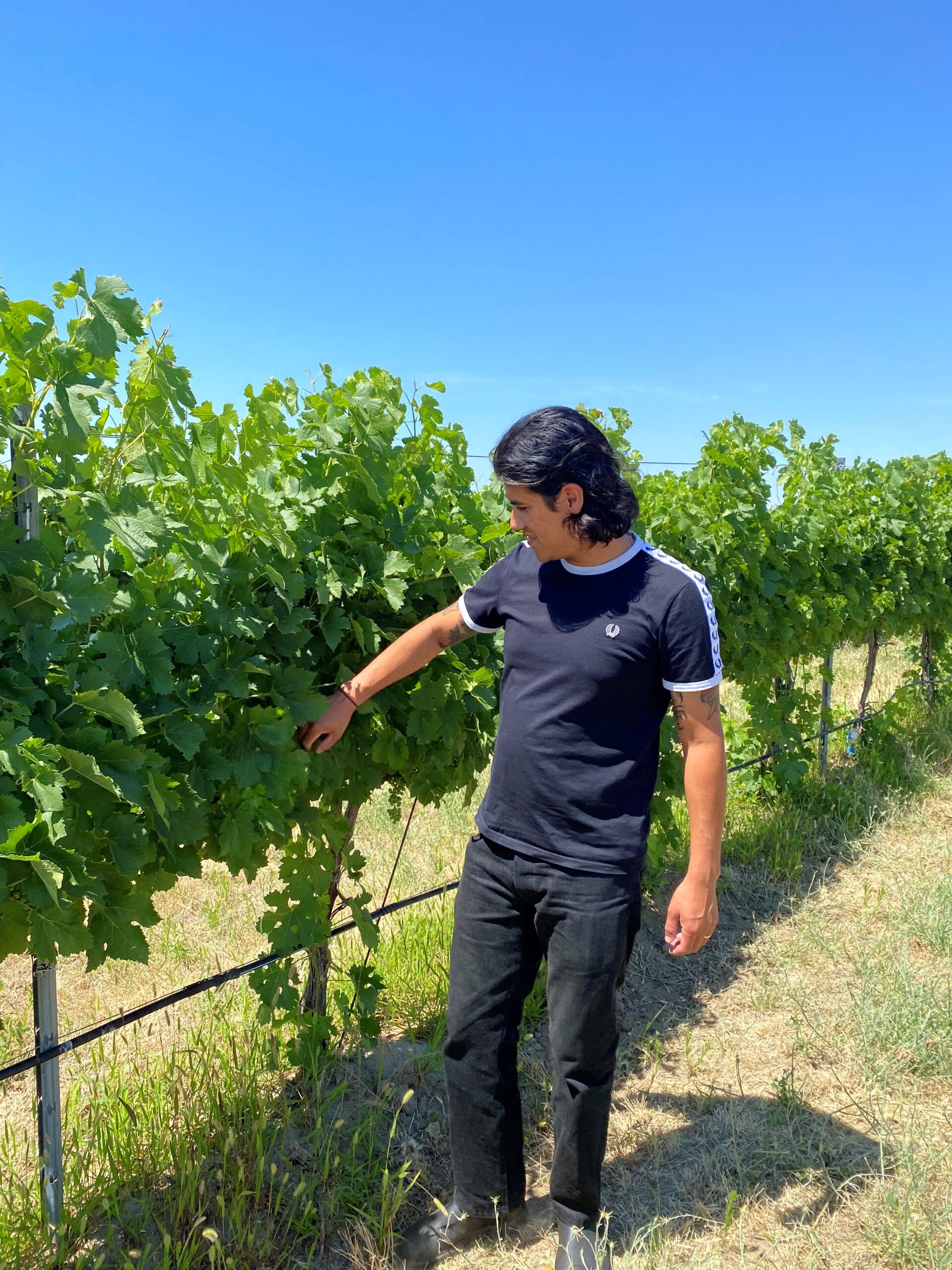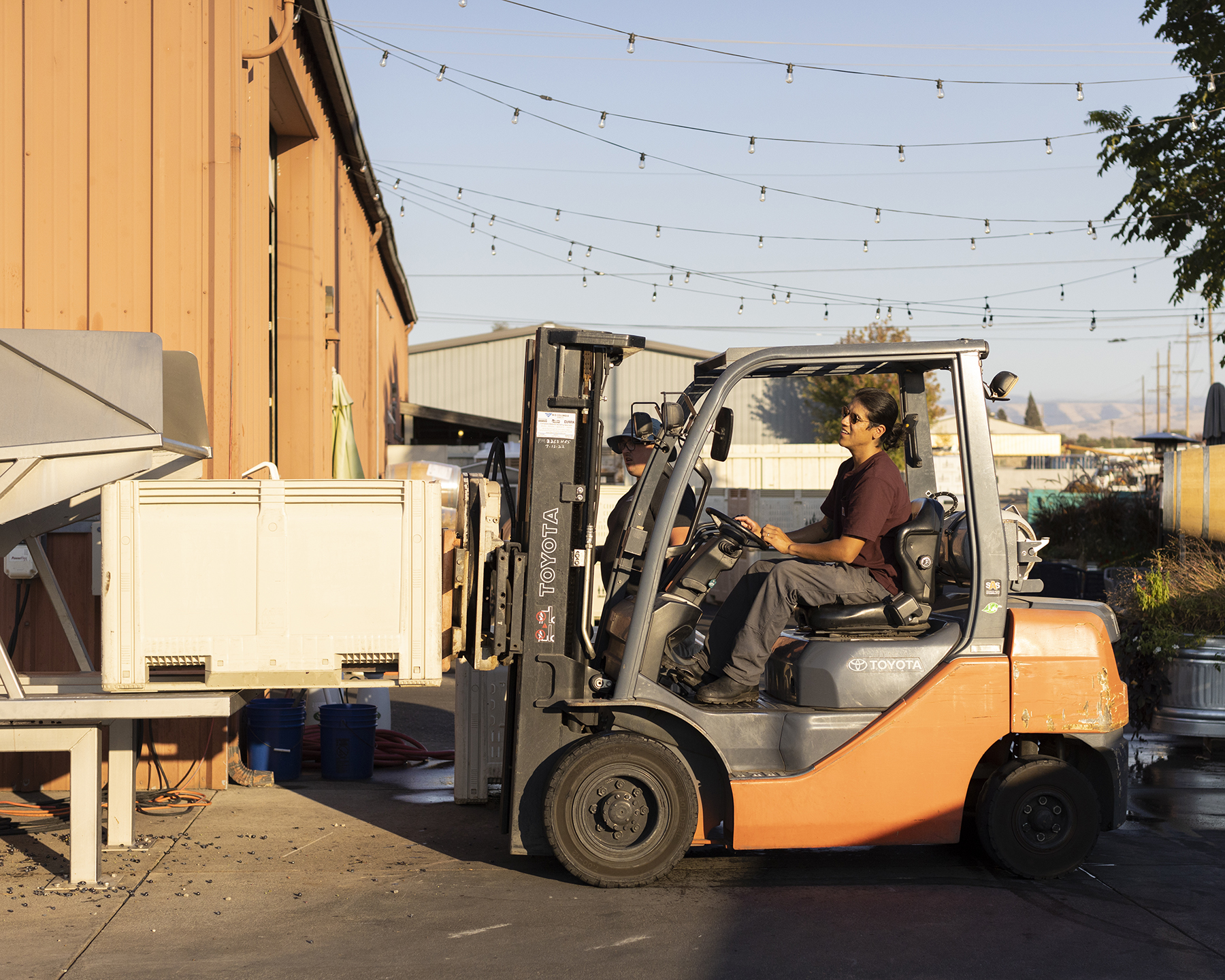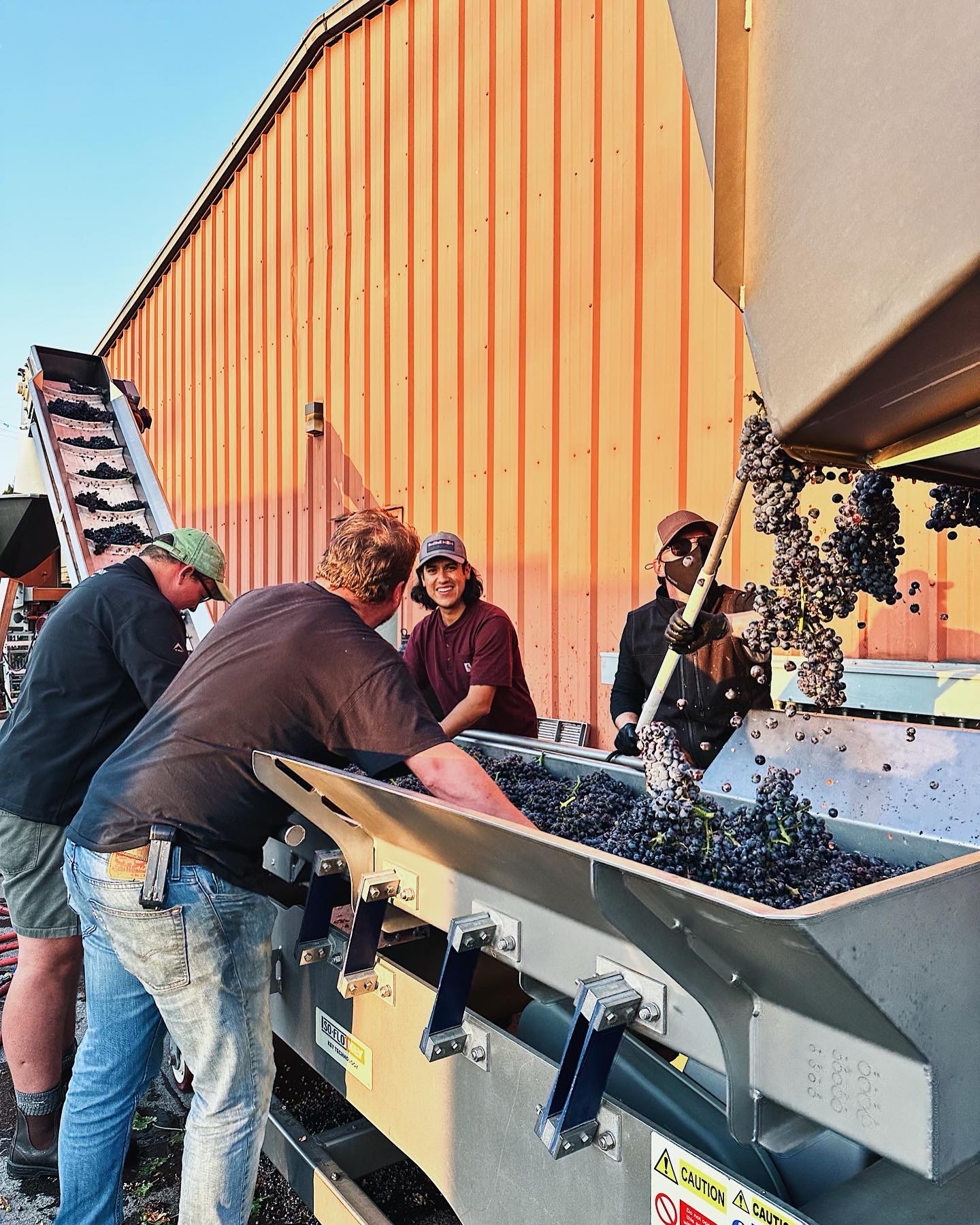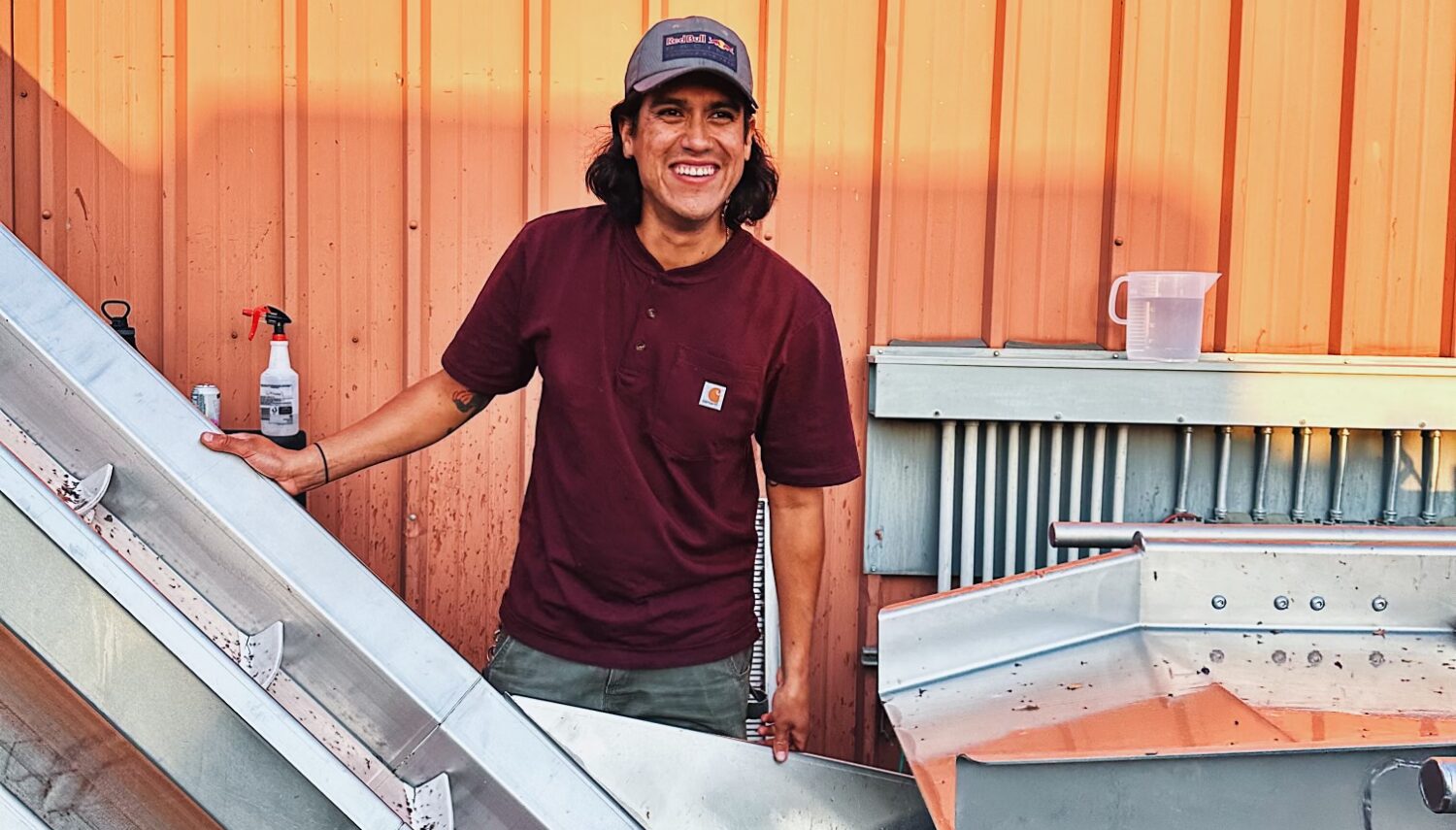Rick Swanson: Can you please update me on some basic information: date of EV graduation, current employer and position, social media handles, preferred contact details
Salvador Jimenez: Graduated June 2022, Employer: Gramercy Cellars – Cellar Master. Preferred contact is email: sal@gramercycellars.com Instagram: @cornaspapi

RS: How did you get into wine?
SJ: I first began working in the beverage industry as a cocktail bartender in Los Angeles. While I was living there, I traveled to New Orleans where I met my future spouse, Danielle, and we shared a beautiful bottle of Gamay together. Just like that my wine journey began. Soon afterwards I moved to Brooklyn, New York to be with Danielle and I began working at various NY wine shops and bars. I was able to taste through many distributor/importer portfolios while living there, and my passion for wine has only grown since then. My first harvest was in 2019 in the state of Maine working with both European vinifera and American hybrids.
RS: Is there someone in the EV world that you admire, including fellow EV alums?
SJ: I’m inspired by people who live and work in the margins… People who take a different approach… I really admire contemporaries such as Mimi Casteel from the Willamette Valley. Casteel happens to make and grow wine, but her core work deals with the future of agriculture and ways of reversing ecological damage, specifically through regeneration of our topsoil.
RS: What’s special to you about working in the wine industry?
SJ: What is special about our industry is that wine is much more than just a beverage. The land and the migrant workers/vineyard stewards who work the land should be our top priorities. I want to be a farmer that embraces true organic farming as a tool for reversing ecological damage, while also being a champion and proponent of labor/worker’s rights. I believe in being the change that you wish to see in the world.

RS: What is your favorite part of your job?
SJ: I love going to work every day. Truthfully, I see it as more of a lifestyle. I enjoy all the different seasons and tempos that my job in the cellar offers. Harvest time is by far my favorite time of the year. I love building and working in teams with common goals. It is sort of like building a championship-winning Fútbol team, only our world cup happens every vintage.
RS: What are some of the challenges you’ve faced in the industry?
SJ: This can be a tough industry without a doubt. You often don’t see many minorities in the cellar or in positions of decision making. Things are slowly changing for the best, however. I like to think that I am part of that change and I take my work very seriously because of this. I look forward to being a mentor someday soon to others making their way through our industry. The lack of upward mobility and growth opportunities for certain sectors of our industry should be at the forefront of our work. We need to leave this industry better than we found it.
RS: What do you think differentiates and excites you about Washington wine?
SJ: What differentiates Washington from other West Coast wine regions is that there’s still room for growth here; new wine styles and alternative vinifera varieties that are perhaps better-suited for the evolving growing-conditions of the future. It’s exciting to see small vineyards and small labels getting their start here. There is a rich history of grape growing and winemaking all along the West Coast, but a lot is still unwritten. I’m excited to help write the next chapter.

RS: How do you foresee climate change or social issues affecting the local industry in the next few years?
SJ: With regard to climate change, I believe it’s going to get worse before it gets better. We are already witnessing the effects of severe weather conditions during each harvest. There will continue to be less water, contributing to challenging growing conditions all around. But what I see as even more important, and directly correlated with climate justice, is the need to shift our thinking around issues involving labor and worker rights (especially within the vineyard). Is it purely an issue of labor shortage that is affecting our industry? Or is it working conditions, unaffordable housing, systematic oppression, and sometimes non-existent pathways of upward mobility for vineyard stewards that contributes to more machines in our vineyards? I think that taking a holistic view is the only way for the industry to achieve real and meaningful progress towards climate and social solutions.
RS: What are some up-and-coming trends in wine that you’re following?
SJ: New and more sustainable types of packaging, lighter glass, and different formats are all ideas that excite me. Different wine styles, obscure grape varieties, racial and ethnic diversity within the industry, and the demand for more organic-certified farming practices within our Walla Walla AVA are some of the trends that keep me going. Trends are only relevant if they can also improve the current state of our industry, both socially and ecologically.
RS: What advice can you share with future EV graduates?
SJ: Work as many harvests as you can straight out of the gate. Jump in and be helpful, get your hands dirty both in the vineyard and in the cellar. Know your grape varieties and predominant wine styles of the Walla Walla AVA and don’t be afraid to ask questions. One must first learn the rules before being able to break them… Don’t forget to also taste wines from around the world. Diversity is key.


Join the Conversation